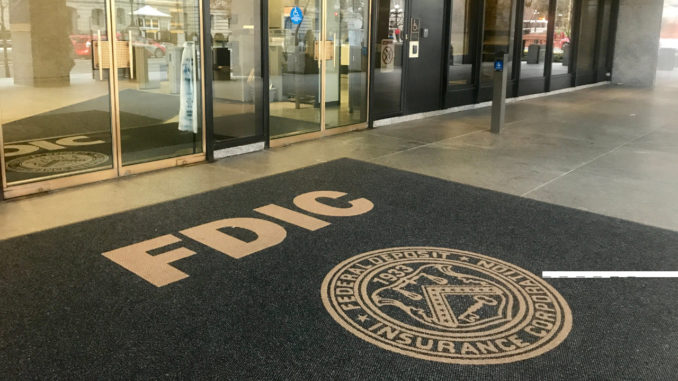
The U.S. Federal Deposit Insurance Corporation (FDIC) has asked thousands of banks and other financial institutions it supervises to declare existing crypto activities and any plans they have to engage in crypto activities in the future.
Banks to Disclose Crypto Plans to FDIC
The Federal Deposit Insurance Corporation (FDIC), an agency created by Congress to maintain stability and public confidence in the U.S. financial system, announced Thursday:
The FDIC is requesting all FDIC-supervised institutions that are considering engaging in crypto-related activities to notify the FDIC of their intent and to provide all necessary information that would allow the FDIC to engage with the institution regarding related risks.
The FDIC is the insurer for all insured depository institutions (IDIs) in the U.S. and the primary federal supervisor for state-chartered banks and savings institutions that have not joined the Federal Reserve System.
As of Dec. 31, 2021, there were 3,122 FDIC-supervised institutions and 4,839 FDIC-insured institutions. Among FDIC-supervised institutions, 2,816 were commercial banks and 306 were savings institutions.
“Any FDIC-supervised institution that is already engaged in crypto-related activities should promptly notify the FDIC. Institutions notifying the FDIC are also encouraged to notify their state regulator,” the announcement details, adding:
The FDIC will review the information and provide relevant supervisory feedback.
In its letter to supervised entities, the FDIC outlined several risk considerations relating to crypto assets. They involved safety, soundness, financial stability, and consumer protection.
The FDIC reiterated:
Crypto-related activities may pose significant safety and soundness risks, as well as financial stability and consumer protection concerns.
What do you think about the FDIC asking supervised entities to disclose their crypto activities and future plans related to crypto? Let us know in the comments section below.
Image Credits: Shutterstock, Pixabay, Wiki Commons
Disclaimer: This article is for informational purposes only. It is not a direct offer or solicitation of an offer to buy or sell, or a recommendation or endorsement of any products, services, or companies. Bitcoin.com does not provide investment, tax, legal, or accounting advice. Neither the company nor the author is responsible, directly or indirectly, for any damage or loss caused or alleged to be caused by or in connection with the use of or reliance on any content, goods or services mentioned in this article.






Be the first to comment